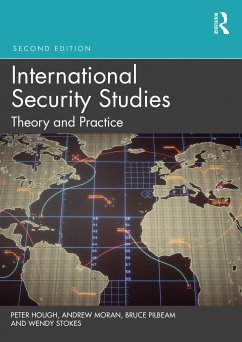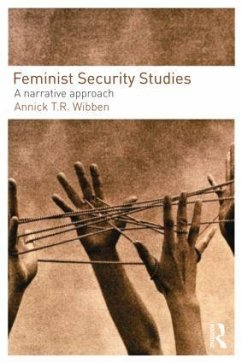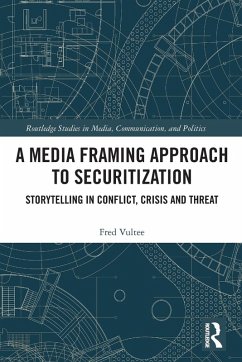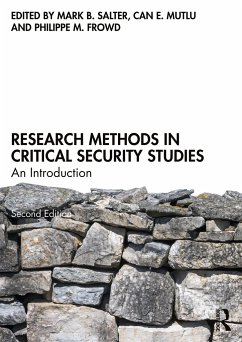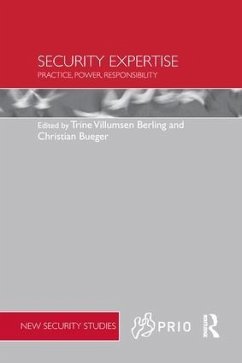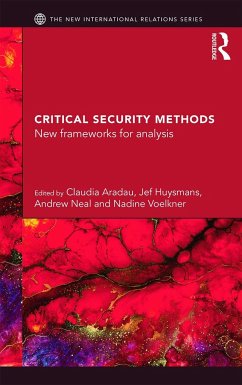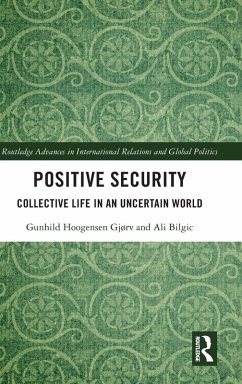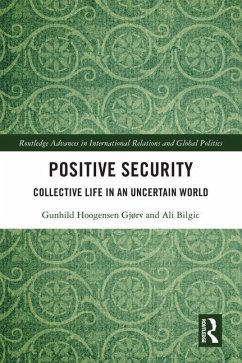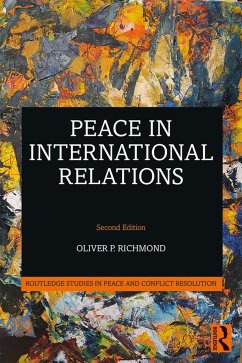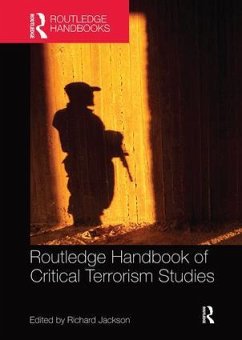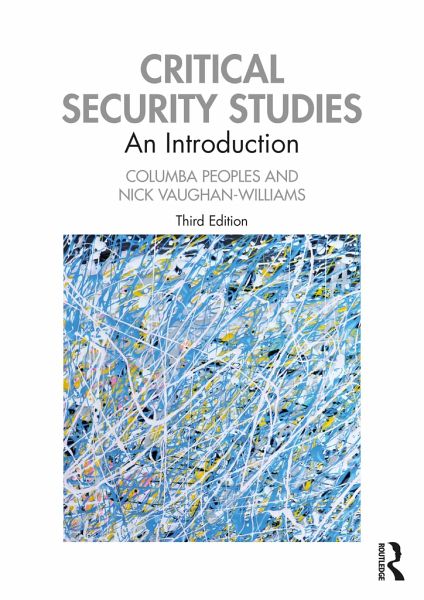
Critical Security Studies
An Introduction
Versandkostenfrei!
Versandfertig in 6-10 Tagen
41,99 €
inkl. MwSt.
Weitere Ausgaben:

PAYBACK Punkte
21 °P sammeln!
This textbook introduces students to the sub-field of critical security studies through a detailed yet accessible survey of emerging theories and practices. This third edition contains two new chapters - on 'Ontological security' and '(In)Security and the everyday' - and has been fully revised and updated.Written in an accessible and clear manner, Critical Security Studies:offers a comprehensive and up-to-date introduction to critical security studieslocates critical security studies within the broader context of social and political theoryevaluates fundamental theoretical positions in critica...
This textbook introduces students to the sub-field of critical security studies through a detailed yet accessible survey of emerging theories and practices. This third edition contains two new chapters - on 'Ontological security' and '(In)Security and the everyday' - and has been fully revised and updated.
Written in an accessible and clear manner, Critical Security Studies:
offers a comprehensive and up-to-date introduction to critical security studies
locates critical security studies within the broader context of social and political theory
evaluates fundamental theoretical positions in critical security studies against a backdrop of new security challenges.
The book is divided into two main parts. Part I, 'Approaches', surveys the newly extended and contested theoretical terrain of critical security studies: constructivist theories, Critical Theory, feminist and gender approaches, postcolonial perspectives, poststructuralism and International Political Sociology, Ontological security, and securitisation theory. Part II, 'Issues', examines how these various theoretical approaches have been put to work in critical considerations of environmental and planetary security; health, human security and development; information, technology and warfare; migration and border security; (in)security and the everyday; and terror, risk and resilience. The historical and geographical scope of the book is deliberately broad and each of the chapters in Part II concretely illustrates one or more of the approaches discussed in Part I, with clear internal referencing allowing the text to act as a holistic learning tool for students.
This book is essential reading for upper level students of critical security studies, and an important resource for students of international/global security, political theory and international relations.
Written in an accessible and clear manner, Critical Security Studies:
offers a comprehensive and up-to-date introduction to critical security studies
locates critical security studies within the broader context of social and political theory
evaluates fundamental theoretical positions in critical security studies against a backdrop of new security challenges.
The book is divided into two main parts. Part I, 'Approaches', surveys the newly extended and contested theoretical terrain of critical security studies: constructivist theories, Critical Theory, feminist and gender approaches, postcolonial perspectives, poststructuralism and International Political Sociology, Ontological security, and securitisation theory. Part II, 'Issues', examines how these various theoretical approaches have been put to work in critical considerations of environmental and planetary security; health, human security and development; information, technology and warfare; migration and border security; (in)security and the everyday; and terror, risk and resilience. The historical and geographical scope of the book is deliberately broad and each of the chapters in Part II concretely illustrates one or more of the approaches discussed in Part I, with clear internal referencing allowing the text to act as a holistic learning tool for students.
This book is essential reading for upper level students of critical security studies, and an important resource for students of international/global security, political theory and international relations.





